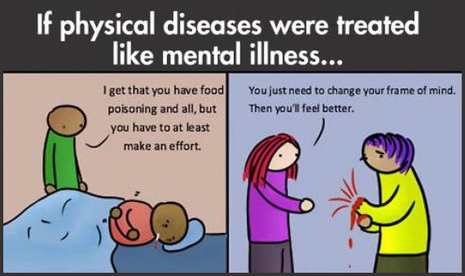
One in five youth (13-24) are experiencing anxiety or depression. The rise in concurrent disorders* is steadily moving upwards and the increase of youth engaging in self-harming behaviour is staggering. For a youth that's struggling, it only takes one person that's willing to listen and support them, to make a significant difference in their lives.
So, where do you start?
The first step is investing time into creating a relationship with that youth...it comes down to building (and maintaining) trust. A lot of people talk about the concept of building those relationships and developing trust, but what's sometimes lacking are the tangible ways to do that. Below are a few ways to spark a long-term, trusting relationship with a teen.
- Make an effort to get to know them before getting to know their problems. We want to encourage youth to recognize that their struggles don't define who they are. To what kind of music do they listen? What makes them smile? Is there something in which they take a personal interest?
- Find opportunities to empower them. This can be as simple as giving them an opportunity to teach you something.
- Listen to understand, not to reply. When they are sharing something with you, don't get caught up in what you're going to say back to them. Allow yourself to stay in the moment and listen to what they are communicating to you. Listen for their tone and for what's really being said.
- Don't use dismissive language. It's not helpful to tell a youth that 'everything is going to be ok' or that they should just 'let it go.' When we say things like that, what we're really saying is that their feelings aren't worth validating. Instead, ask them questions to help you clarify and understand what they're feeling. Doing this also helps the youth clarify and identify how they are feeling.
- Don't be afraid of vulnerability. A relationship involves give and take. If you're asking a youth to share personal information about themselves, be ready to share a bit of insight into the things you've gone through in life. That doesn't mean they need to know the intimate details of your life or even that it's appropriate for you to share those things with a youth, but they do need to feel like they aren't the only ones sharing personal information.
If you want to chat about youth mental health, feel free to email me or call me here at the office at 604-463-2229. You can also use either of those methods of communication to sign up for our next Mentor Training Session, which is taking place on Saturday, May 21st at the CEED Centre Neighbourhood House from 10 am to 2 pm. The session is free and covers topics like effective youth mentorship, identifying and supporting mental health issues in youth and the importance of community integration.
I would love to see you there,
Teesha
*Concurrent disorders: Experiencing more than one mental health issue at once. An example of this is youth with anxiety and depression or youth with depression and utilizing self-harm as a coping mechanism.
 RSS Feed
RSS Feed
